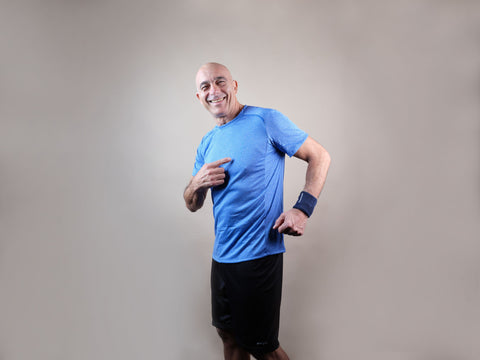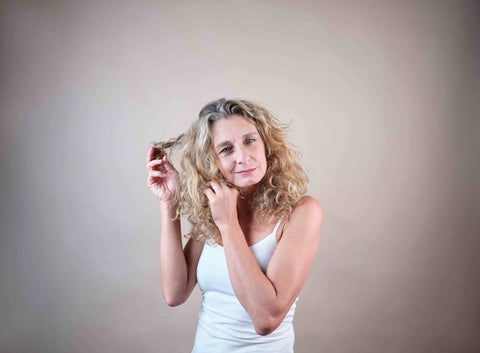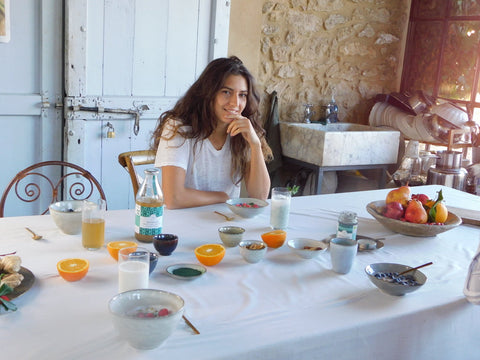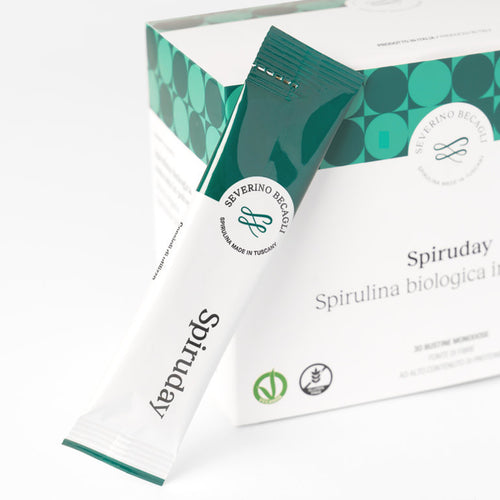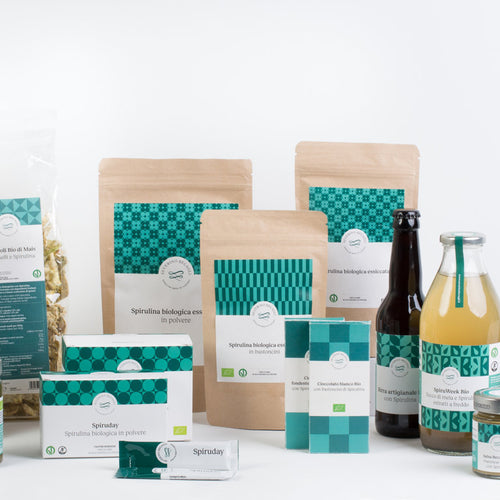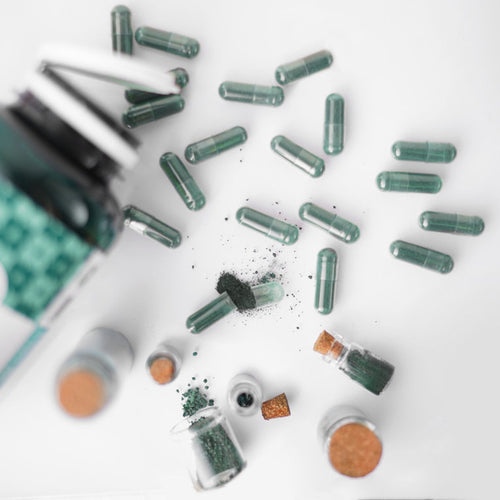The Case Study of Dr. Salvatore Ilaria - Sports Doctor and Nutritionist
Spirulina is recognized for being an excellent food supplement, also widely used by athletes for its important intrinsic properties.
Being rich in easily assimilable vegetable proteins, it is increasingly present in the diet of athletes, including high-level athletes, who use it daily during periods of higher physical intensity.
In fact, spirulina is excellent both pre and post workout because in addition to giving energy useful for training, it helps in recovery by promoting blood oxygenation.
Spirulina Becagli has always stood out as a support for high-level athletes, as proven by the many collaborations with athletes from different sports: from cycling to football, from rugby to triathlon, through athletics and baseball.
There are also many collaborations that the company carries out with professionals in the nutrition and sports sector and one in particular gave rise to an interesting case study created by Dr. Salvatore Ilaria which we report to you in full to better understand the activity carried out. A case history that empirically demonstrates the actual benefits of using spirulina for high physical intensity athletes.
Who is Dr. Salvatore Ilaria?
Nutritionist and clinical dietitian, sports medicine specialist, sports nutritionist, medical hydroclimatology and spa clinic specialist, unconventional treatment therapist (mindfulness), homeopathic doctor.
INTRODUCTION
Intestinal endotoxicosis, or intestinal bacterial intoxication, in subjects practicing very intense sporting activity are a complication known for some time, but only in the last ten years have we had a nosological framework and in-depth analysis that have contributed to characterizing them better and better and with great detail and therapeutic suggestions.
STUDY DESIGN
5 subjects practicing very intense physical activity, especially endurance events (disciplines that involve extreme physical exercise and linked to a possible "poisoning" of the blood) who almost constantly undergo intestinal endotoxicosis due to phlogotic involvement of the digestive system (inflammation of viral origin, bacterial, fungal or parasitic) with consequent diarrhea and dehydration and often with recurrent colic, they voluntarily underwent a diet prescribed by the undersigned medical specialist, with legume pasta, protein, rich in fiber and low in carbohydrates, supplemented with phytosterols ( in drink), hydration only with low-mineral water (1 liter per day on an empty stomach after the race is over and in progress), in order to avoid the possible appearance of deficiencies and to evaluate the impact of this diet, supplementation and hydration on what pathology is it?
All subjects were supplemented with Spirulina Becagli (Spiruday powder = 1 sachet after physical activity + Spirucap cps = 3 cps before physical activity) until available.
ENDPOINT
Antea: diarrhoea, nausea, colic-like abdominal pain, intense asthenia and low-grade fever, tissue oxygenation, reduction of the sense of hunger, evening.
Postea: the same symptoms to be re-evaluated at the end of the test
RESULTS
After 30 days of testing there was a good improvement in diarrhea, colic and asthenia and disappearance of low-grade fever and nausea for 4 out of 5 participants who enrolled. In one case the situation remained quo ante but the low-grade fever disappeared here too.
In all participants, stress measured with the POMS method showed an improvement in mood, a lower sense of perceived fatigue and an improvement in global performance.
Tissue oxygenation is improved, calculated on the duration of physical effort, reduced starting from the 15th day after taking SPIRULINA, as is the sense of hunger and therefore increased weight loss.
DISCUSSION
I believe that the good result achieved is largely due to the diet practiced, rich in fiber (the fiber present eliminated the symptoms linked to metabolic acidosis such as cramps and asthenia) and increased interleukin 10, an inhibitory factor of pro-cytokines inflammatory IL-2 IL-3 etc, effectively reducing intestinal inflammation with all its symptomatology.
In my opinion, particular merit should be attributed to Spirulina, in this case Spirulina Becagli, an algae rich in proteins, amino acids, a superfood, also called food of the Gods, rich in natural antioxidants that reduce free radicals (see improvement of tissue oxygenation) and cellular renovatio with polyvitamins (vit A, D, KE, B) and mineral salts (calcium, iron, zinc etc), useful as tonics for the immune system, all these have contributed to the anti-phlogotic and anti-reactive action on the intestinal mucosa ( slight impact).
CONCLUSIONS
Based on what emerged from the clinical investigation, I believe that the indicated treatment, including Spirulina Becagli, can also be indicated in the aforementioned intestinal endotoxicosis as well as in various other situations deriving from pathologies and performance and in general in those practicing sporting activities, naturally not excluding the due daily hydration for athletes and non-athletes alike.
We can therefore conclude that the use of Spirulina Becagli, an organic, Italian spirulina dried at low temperatures, to supplement the diet of athletes is not a dream or a myth, but reality!

